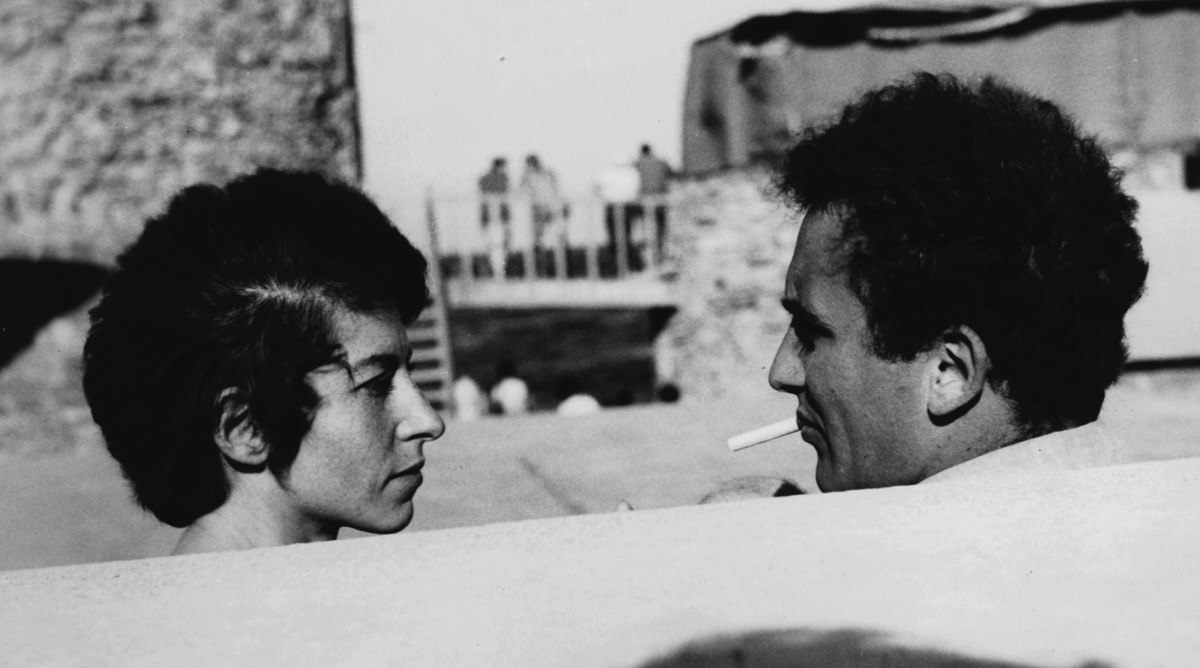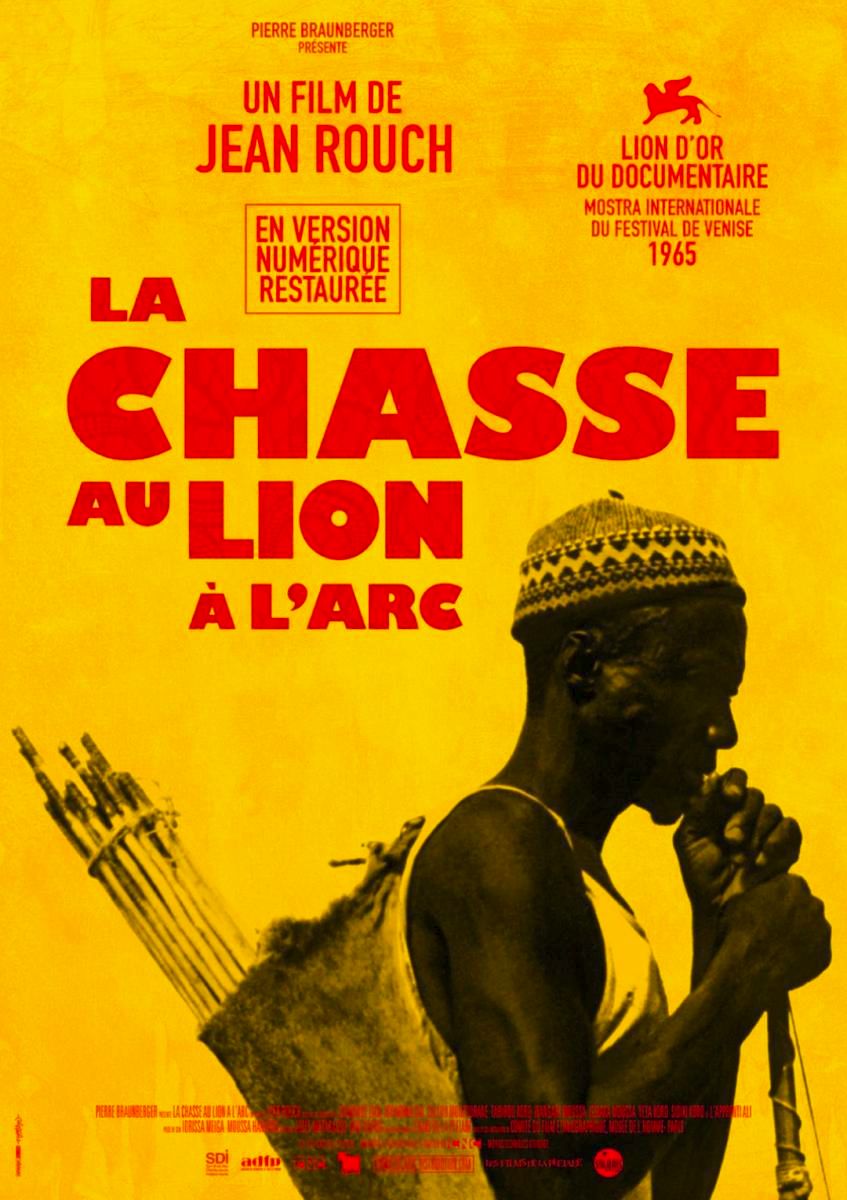"A prolific and innovative ethnographic filmmaker as well as a pioneer of cinéma vérité and improvised film psychodrama, Jean Rouch has not only redefined documentary film practice but also stimulated radical developments in fiction film… Latter-day film and TV documentarists as well as radical filmmakers such as Godard attest to his influence in sociological film essays (Masculin et féminin)." - R.F. Cousins (International Dictionary of Films and Filmmakers, 2000)
Jean Rouch
Key Production Country: France
Key Genres: Documentary, Culture & Society, Short Film, Drama, Comedy, Anthropology
Key Collaborators: Pierre Braunberger (Producer), Damouré Zika (Leading Actor), Nadine Ballot (Leading Actress), Lam Ibrahim Dia (Leading Actor), Josée Matarasso (Editor), Illo Gaoudel (Leading Actor), Roger Morillière (Cinematographer)
Key Genres: Documentary, Culture & Society, Short Film, Drama, Comedy, Anthropology
Key Collaborators: Pierre Braunberger (Producer), Damouré Zika (Leading Actor), Nadine Ballot (Leading Actress), Lam Ibrahim Dia (Leading Actor), Josée Matarasso (Editor), Illo Gaoudel (Leading Actor), Roger Morillière (Cinematographer)
"What gives his work its novelty, elasticity and disruptive power lies chiefly in the discomfort it effects, using any means to attain its ends, resorting to different techniques, venturing into hitherto uncharted areas, mingling devices previously believed to be contradictory, and refusing to be confined by any established facts." - Jean-André Fieschi (Cinema: A Critical Dictionary, 1980)
"Cinéma vérité is a term so frequently used that it is sometimes forgotten that the main instigator of both the label and the style was the ethnological filmmaker Jean Rouch… Rejecting both the idealism of Robert Flaherty and the didacticism of Joris Ivens and John Grierson, Rouch aimed for the immediacy of television, without its superficiality. He believed that the camera's intervention stimulated people to greater spontaneity, expression and truth without asking them, as in the American Direct Cinema, to act as though the camera was not there. "The camera eye is more perspicacious and more accurate than the human eye," he said. "The camera eye has an infallible memory, and the filmmaker's eye is divided." - Ronald Bergan (The Guardian, 2004)

Chronicle of a Summer (1961)
"It is a tribute to the intellectual and academic acceptance of cinema in France that Jean Rouch had such an influence on film theory and feature movies during the 1960s… As a feature-length director, Rouch knew his limitations. Petit à Petit is a slight but charming account of a Niger businessman’s perplexity in Paris. But in La Chasse au Lion à l’Arc, especially, he went back to African anthropology, and produced a brilliant study of a tribe’s need to make a legend to sustain its own primitive existence. That film, Chronique d’un Été, Moi, un Noir, and La Pyramide Humaine ensure Rouch a key place in the history of documentary, and the discovery that it was an unexpectedly complex form." - David Thomson (The New Biographical Dictionary of Film, 2010)
"Jean Rouch’s greatest contribution was to have created a body of work in which the limits of the ethnographic are the limits of the imagination. In Jean Rouch’s universe ethnographers participated fully in the lives of their others. Dreams became films; films became dreams. Feeling was fused with thought and action. Fusing poetry and science, Jean Rouch showed us the path of wise ancestors and guided us into a wondrous world where we not only encounter others, but also encounter ourselves. As the West African trader in New York City said, Jean Rouch was ultimately a griot who told the story of African social life so well that his words and images have enabled the young to uncover their past and discover their future." - Paul Stoller (Rouge, 2004)
"A professional ethnographer who, after making Jaguar and Moi, un noir, became in the Sixties, the apostle of cinéma vérité. He aimed to avoid dramatic trickery and to bring life directly to the screen by using nonprofessional actors recreating their own lives for the camera in the Flaherty manner. He is also one of the first to give black Africans a voice on international screens… His exploration of new techniques in an unbroken succession of profoundly humanistic films opened new perspectives for the cinema and have had a wide influence." - Georges Sadoul (Dictionary of Film Makers, 1972)
"Jean Rouch began as a civil engineer interested in rituals he observed in colonial Niger; nearly 120 films later, he would be an avatar of the Nouvelle Vague, one of the inventors of cinéma vérité, of visual anthropology, of “ethno-fiction,” and of the Nigerien film industry itself." - Film Forum
"Rouch’s work greatly contributed to the revitalisation of cinema that, kindled by neorealism’s location shooting and “ready-made” actors, was happening in the late-1950s. He developed—and legitimised—an artisanal, improvisational filmmaking model that employed non-professional actors, portable cameras and synchronous sound, and which had a powerful impact within French filmmaking, especially on certain nouvelle vague auteurs for whom Rouch became first an inspiration and later a marginal colleague." - Matt Losada (Senses of Cinema, 2010)
"Cinéma vérité is not the film of truth, but the truth of film." - Jean Rouch
Selected Filmography
{{row.titlelong}}
Jean Rouch / Favourite Films
Shoulder Arms (1918) Charles Chaplin.
Source: Sodankylä Ikuisesti: Desert Island Films (1996)
Shoulder Arms (1918) Charles Chaplin.
Source: Sodankylä Ikuisesti: Desert Island Films (1996)
Jean Rouch / Fan Club
Cristina Nord, Miguel Marías, Rebecca Zlotowski, Manthia Diawara, Martin Brady, Charles Musser, Yale Gontijo, Mahamat-Saleh Haroun, Clio Barnard, Nelson Pereira dos Santos, Werner Herzog, Heddy Honigmann.
Cristina Nord, Miguel Marías, Rebecca Zlotowski, Manthia Diawara, Martin Brady, Charles Musser, Yale Gontijo, Mahamat-Saleh Haroun, Clio Barnard, Nelson Pereira dos Santos, Werner Herzog, Heddy Honigmann.
"Fan Club"
These film critics/filmmakers have, on multiple occasions, selected this director’s work within film ballots/lists that they have submitted.
These film critics/filmmakers have, on multiple occasions, selected this director’s work within film ballots/lists that they have submitted.


